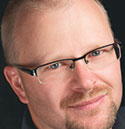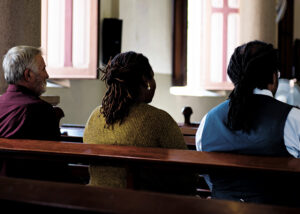Be honest, you’re only reading this because of the title.
Yup, you have issues. But so do I.
My understanding of sex was shaped within the context of my small-town church community and wider family. Pretty much everywhere there was blushing at that dirty word.
Then I got married to a beautiful woman. The transition into post-virginity was both wonderful and treacherous. That wasn’t her fault and it wasn’t mine, it just was. Sex is messy because I am messy.
What’s the point of this uncomfortable conversation? Well, the life of our wider church seems dominated by sex lately. We’re thinking a lot about “it.”
This issue is emotionally charged. We want to prove our point and win others to our side. We are quick to judge—on both sides of the debate. We want to be right; our identities depend upon it. Perhaps we’re led by fear, insecurity or pride. Perhaps our position has roots in our pain, our thirst for righteousness or our desire to protect human dignity. We’re probably even somewhat reluctant to admit the deeper roots of the emotions we feel.
Despite all this, I believe the real debate is not over sexuality, but over the source of authority. This is the root question: Does the Bible speak with authority or is the authority for living—and living out our messy sexualities in this case—found somewhere else?
Everyone within our tribal debate seems to take Scripture seriously. However, are we being honest about what Lesslie Newbigin calls the “plausibility structure,” the underlying practices and beliefs that determine which ideas are believable and beyond doubt in our society?
I don’t believe we are, and this is the crux of the issue. Our pluralist society accepts science, reason and personal experience or fulfilment as the undeniable neutral fount from which something is believable and “true.” We are tempted, therefore, to interpret Scripture through that lens. If we do this, however, we start from the wrong place. While science, reason and personal experience are not to be dismissed, for the followers of Jesus none of these ultimately form the way in which what is true is determined.
For the Christian, the starting point for understanding truth is the gospel. The gospel-given witness in Scripture—that Christ has died, Christ has risen and Christ will come again—relativizes every other way we once interpreted the world.
The first words of Jesus are, “Repent and believe the good news” (Mark 1:15). Jesus calls us to admit the way we’ve seen the world—and decided what is true—has been wrong, and to believe in him as the way, the truth and the life.
With some of his last words on the Road to Emmaus, he showed how the Scriptures were about him (Luke 24:13-49). Scripture is not a tool for self-justification or brow-beating, but witness of the One who is the image of the invisible God, full of grace and truth. From this gospel then, we interpret our world and our living in it.
And this brings us back to sex. Heterosexuals and homosexuals have common ground as sinners. Let’s stop the denial: We are all sexually broken. Do we risk arguing for the world we desperately want to be true, only to find ourselves propping up either a Bible-quoting self-righteousness that has truth but no grace, or a Bible-editing self-righteousness that has grace but no truth? In both cases, we may get exactly what we already want without the good news.
Phil Wagler thinks it may take a lifetime to think clearly about sex. He is author of Kingdom Culture.






Leave a Reply
You must be logged in to post a comment.